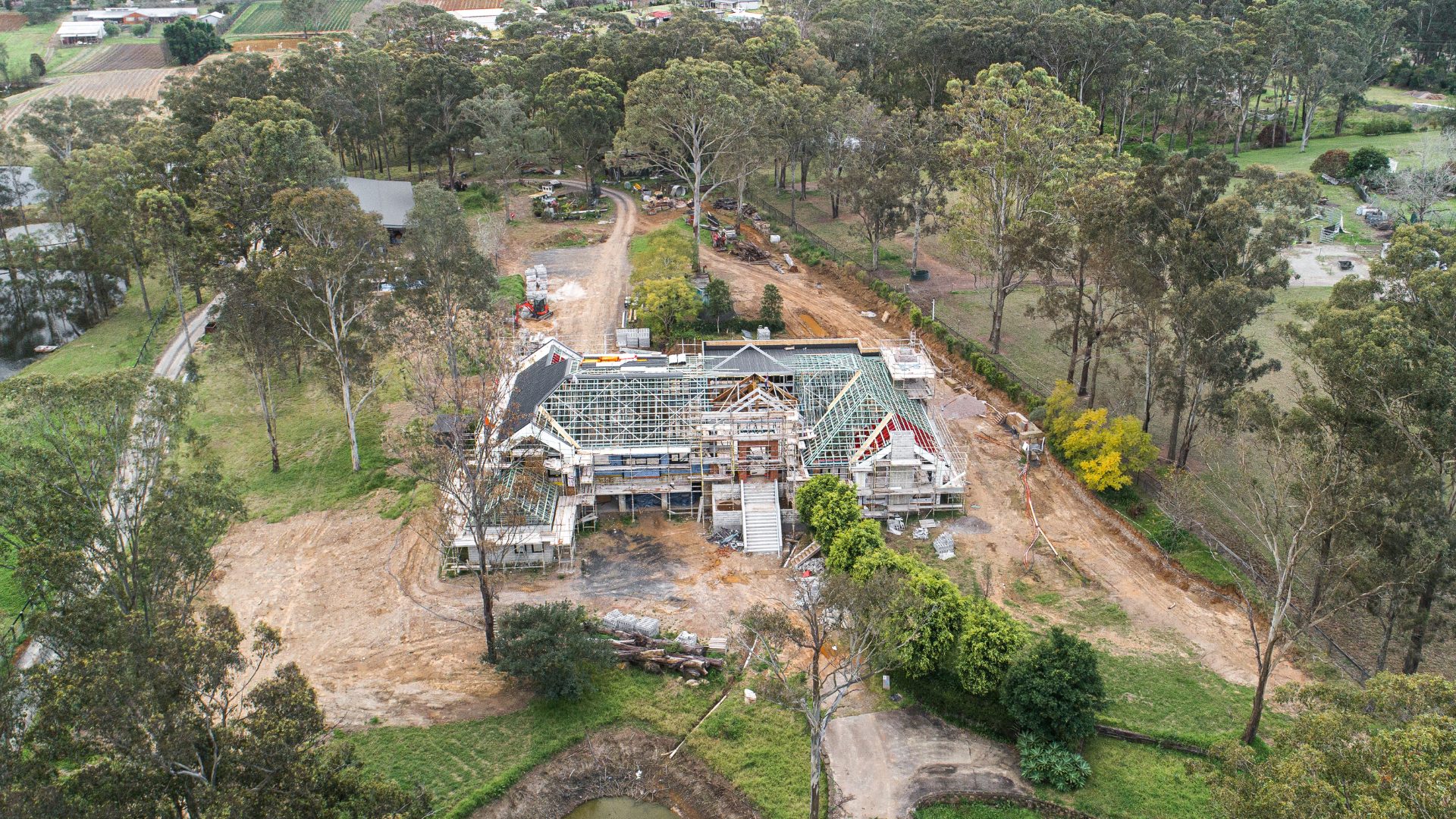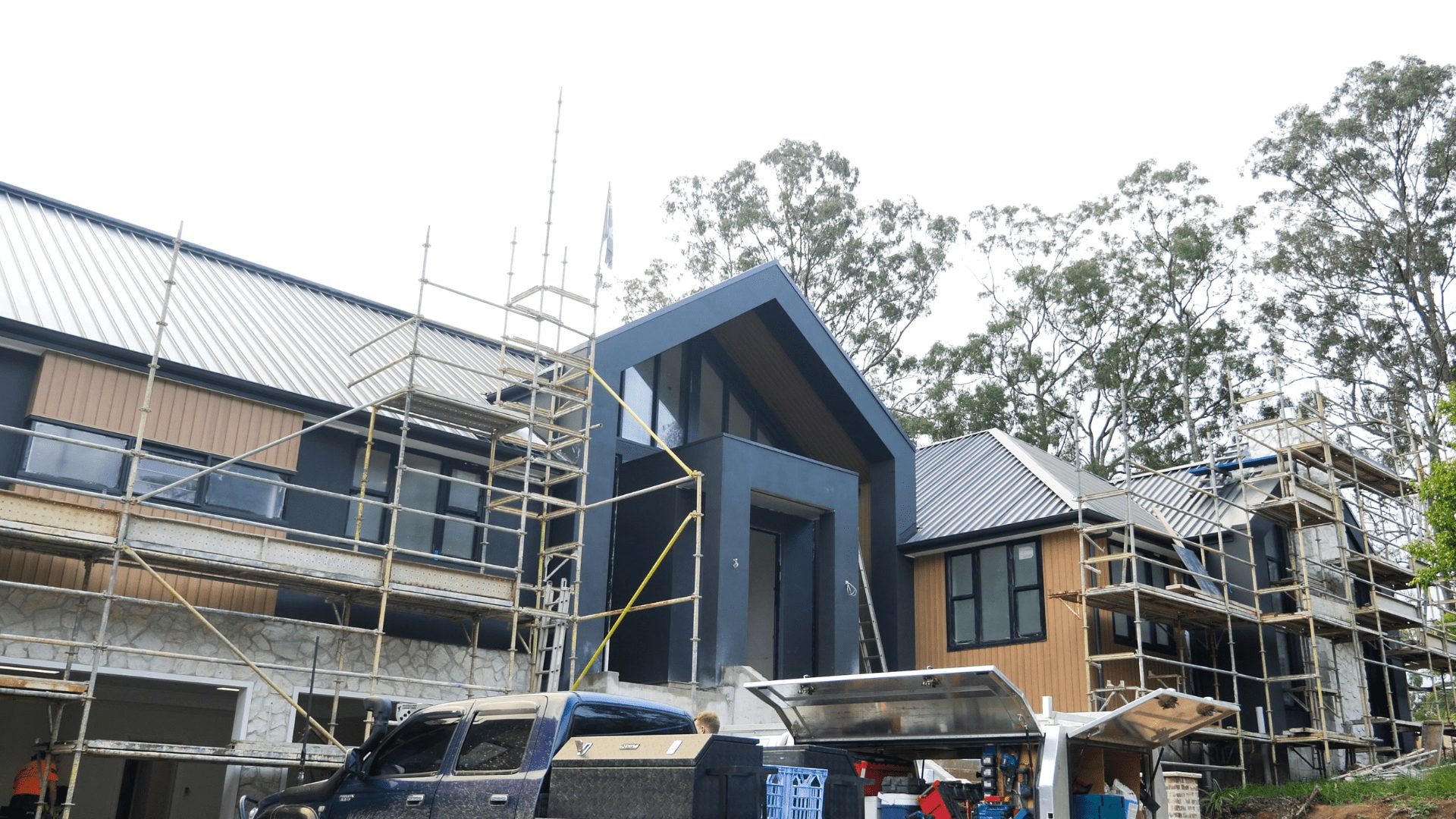
Buying a block of land to build a house from scratch can be daunting, especially for first-timers. Contrary to popular belief, constructing your own home gives you greater flexibility and is more cost-effective. Here’s a 9-step checklist to help you with the process.
Expert Advice from Our Design Team
“Don’t rush the land selection process. It’s important to find a spot that truly feels right. When budgeting, always factor in a little extra for those just-in-case scenarios. It’s all about preparing for the unexpected”.
– Henry, Project Leader
“As you embark on building your home, take a moment to envision how it will blend into the neighbourhood. Choose a plot that complements the existing surroundings and fits your lifestyle needs. Remember, convenience matters, so make sure the location offers easy access to essential amenities like schools and shopping centres.”
– Xu, Project Leaders
1. Set a realistic budget
Before you set on buying land, it is always good to determine how much you can afford. Calculate your borrowing capacity and allocate accordingly, e.g., the price of land, construction costs and interiors will make it easier to see where your money goes. If you’re a first-time homeowner, you may be eligible for a government grant, and doing your due diligence could help save money.
Most of us must consider the price before we can afford to buy land. Identifying what you’re willing to compromise on early in your land purchase journey is essential in decision-making. While taking out a home loan can free up upfront capital to finance your purchase, keep in mind additional expenses like monthly repayments, service charges, interests and stamp duty.
Always make sure you understand what you’re getting into for your money. Is it a fixed price, offers around or offers over? In Australia, different rules apply to other states. There are also added expenses for professional inspections, surveys and paperwork. Thus, setting aside a contingency budget is necessary.

2. Land suitability
The first question to ask yourself once you have your eye on a piece of land is – Does the land fulfil your personal long-term goals? Buying land is a huge financial commitment, and understanding your needs is key to helping you choose the right parcel of land. Below are a few questions to consider:
- Are you buying land to build a house for your growing family or for investment purposes?
- What is the current market value?
- Are the information on the land title and deed accurate? Engaging a conveyancer assures that all legal requirements are fulfilled.
- Can the block of land accommodate your desired home design and size?
3. Terrain Considerations for the Land
Rule of thumb: Flat land frequently offers a cost advantage in building projects.
When assessing a plot of land, it’s essential to carefully evaluate the terrain, as this can significantly influence construction costs. If the land features steep slopes, you may face higher expenses due to the need for levelling or specialised construction techniques. Similarly, removing trees or excavating rocks represents additional costs that should be accounted for in your budget. Properly estimating these expenses upfront will help ensure you are fully prepared for the financial aspects of building on challenging terrain.
4. Watch out for restrictive covenants
Conduct thorough research and understand what each contract agreement entails, including local zoning laws, easements, building permits, and future building plans. Being aware of these limitations makes it easier to narrow your options when buying land. You can also leverage your knowledge to negotiate a better deal and fully maximise the land’s potential.

5. Know your builder
Key tip: Never settle on the first builder; always shop around and compare quotes.
Contact Australian registered builders to help avoid unforeseen events in your land purchase. Builders who are members of industry organisations such as the Housing Industry Association and Master Builders Association have access to building insurance and resources to offer valuable advice and maintain high-quality standards in their builds.
Their capacity to appoint a dedicated on-site project manager ensures that construction can move smoothly from one stage to another. As with every land, each location has unique challenges, so be sure your builder has vast experience building homes in your local area.
Always verify the offered price and pay extra attention to details to know what is covered and what is not. Site preparation, such as excavation work and rock-breaking services, is quite costly and can quickly add up.
6. Soil test and contour survey
A comprehensive land inspection can help mitigate potential environmental hazards and determine if the land has adequate support for the foundation of your building. Building a house on a sloping terrain incurs additional costs for levelling or requires specially designed houses to safeguard against flooding. There are also design and construction specifications for bushfire-prone areas.
7. Location
Buying land that is in proximity to essentials such as schools, hospitals, supermarkets, entertainment hubs, and public transportation offers modern conveniences for day-to-day activities and improves your home’s value over time. Property in mixed-use neighbourhoods can fetch a premium price should you decide to sell it later.
Additionally, you should inquire with the local council about building proposals and city plans for future development so you know what to expect and if it can accommodate your intention to use your land.
8. Accessibility to utilities
Accessibility to utilities is essential when purchasing land in suburban or rural areas. Ensure the site has access to crucial services like electricity, water supply, gas, and internet. Infrastructure for these utilities may not be fully established in developing areas, requiring significant investment.
For instance, connecting to electrical grids or establishing reliable water sources can be costly. Additionally, high-speed internet, essential for many modern needs, may involve expensive solutions like satellite services or fibre-optic installations.
It’s wise to check any future utility expansion plans with local councils or providers to understand potential developments and budget for these initial and ongoing costs accordingly.

9. Zoning
Understanding the zoning regulations, especially in relation to environmental hazards, is crucial when evaluating land for purchase. Properties located in bushfire-prone or flood-affected zones require extra diligence. You should first verify the zoning status of the land by consulting with your developer and checking with the local city council.
Land that falls within designated bushfire or flood zones is subject to specific planning and building regulations aimed at managing risk. These areas are often mapped by local environmental and safety authorities, which provide valuable resources for assessing the level of hazard associated with a property.
Purchasing land in these high-risk zones can significantly impact your project, especially in terms of financing. Financial institutions may view properties in these areas as higher risks, which could lead to more stringent lending criteria, increased insurance premiums, or even difficulties in securing finance altogether. It’s advisable to factor in potential increased costs for building materials and construction that meet the required safety standards, as well as any possible delays in obtaining planning permissions.
Understanding these zoning implications can prevent future surprises and ensure that you are fully prepared for the extra responsibilities and costs associated with developing land in these areas.
Conclusion
Lastly, follow through with your plan and stick to it. Create a checklist and be proactive to clarify any concerns you have regarding your land purchase. If you change your mind regarding your decision when buying land or if there is a delay in land registration, any additional costs or compensation not covered in the building contract will be your responsibility. Doing your due diligence before purchasing a piece of land ensures both your current and future needs are met.
If you need help or have any questions, don’t hesitate to contact our team at Fyffe Design. With our expertise and dedication, we’ll ensure your journey to homeownership is smooth and enjoyable. Let’s make your dream home a reality.
Frequently Asked Questions (FAQs)
What do I need to consider when buying land?
Buying land is an important milestone and requires careful deliberation. Establishing your purpose for purchasing land and understanding the legal and financial responsibilities associated goes a long way towards helping you find the right one. Factors such as budget allocation, location, partnering with qualified contractors, home design, building permit, zoning regulations and accessibility to amenities should be accounted for to help you build a home for your use. It’s all about striking the right balance between your long-term needs and ticking all the right boxes.
How can I determine if the land is the right fit for me?
Evaluate the land’s suitability by assessing its terrain, potential for long-term personal goals, and current market value. Verify the land title information and consider consulting with a conveyancer. Assess your long-term goals before buying a piece of land, and weigh out the pros and cons of each location to ensure it aligns with your requirements. Never make impulse purchases just based on your current needs.
Why is it important to check the terrain of the land before purchasing?
The terrain can significantly impact construction costs, especially if the land requires levelling or if natural obstacles like rocks or trees need removal.
What should I know about utility access when buying land?
Ensure the land has access to essential utilities such as electricity, water, gas, and internet. Consider the costs of connecting these services, especially in developing areas.
What is a soil test and contour survey, and why are they important?
These tests assess the land’s environmental conditions and topography, which are crucial for determining your construction plans’ structural integrity and feasibility, especially on challenging terrains.
What are restrictive covenants, and how can they affect my land purchase?
Restrictive covenants are rules that govern land use in certain areas. Understanding these can help you avoid legal issues and determine if the land meets your building requirements.
Why is it essential to understand zoning regulations before purchasing land?
Zoning laws affect what you can build on the land. Properties in bushfire-prone or flood-affected zones may require unique building materials and could be subject to stricter planning permissions.
How do I choose the right builder for my construction project?
To choose the right builder for your construction project, start by shopping around and obtaining quotes from multiple builders to compare pricing and services offered. Ensure that the builders you consider are registered and members of reputable industry organisations like the Housing Industry Association or Master Builders Association. Membership in these organisations often guarantees a level of quality and access to additional resources and insurance options.
Additionally, check for past client reviews and ask for references to gauge the builder’s reliability and quality of work. Experience in the specific type of construction you are planning is also crucial. Look for builders with a strong portfolio of completed projects like yours.
Visit ongoing construction sites managed by the builders. This can provide insight into their working style, organisation, and the quality of materials they use. It’s also important to discuss and understand the contract details, warranty provisions, and the builder’s policy on handling changes during the project.
How do I ensure the land purchase and build processes proceed smoothly?
Don’t rush with your land purchase. Take the initiative to talk to experts and actively participate in the buying process. For example, enlisting the service of a conveyancer can assist in explaining technical jargon, identifying your rights and obligations and protecting your best interests. Hiring a registered builder who demonstrates vast experience working with local clients also means they have the resources to manage your project effectively.



